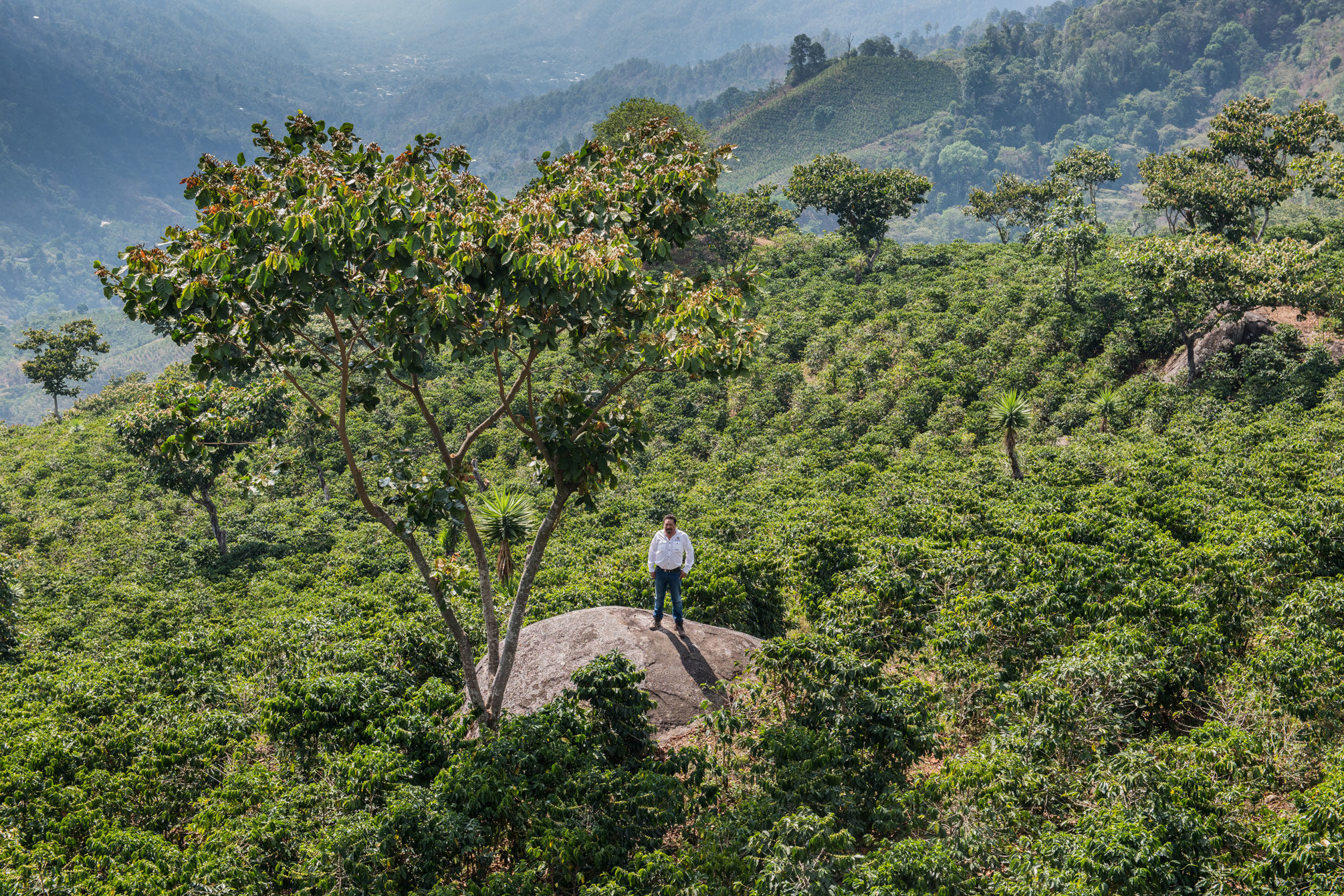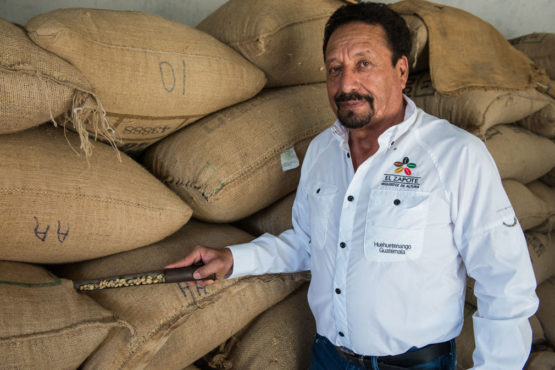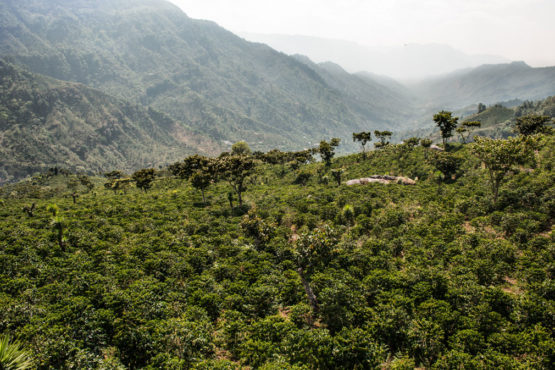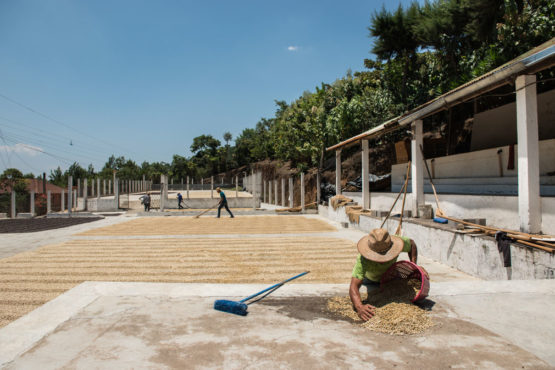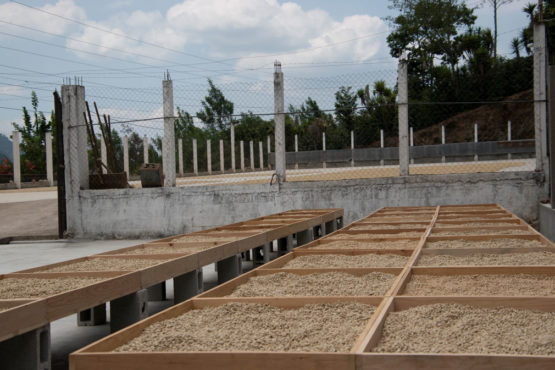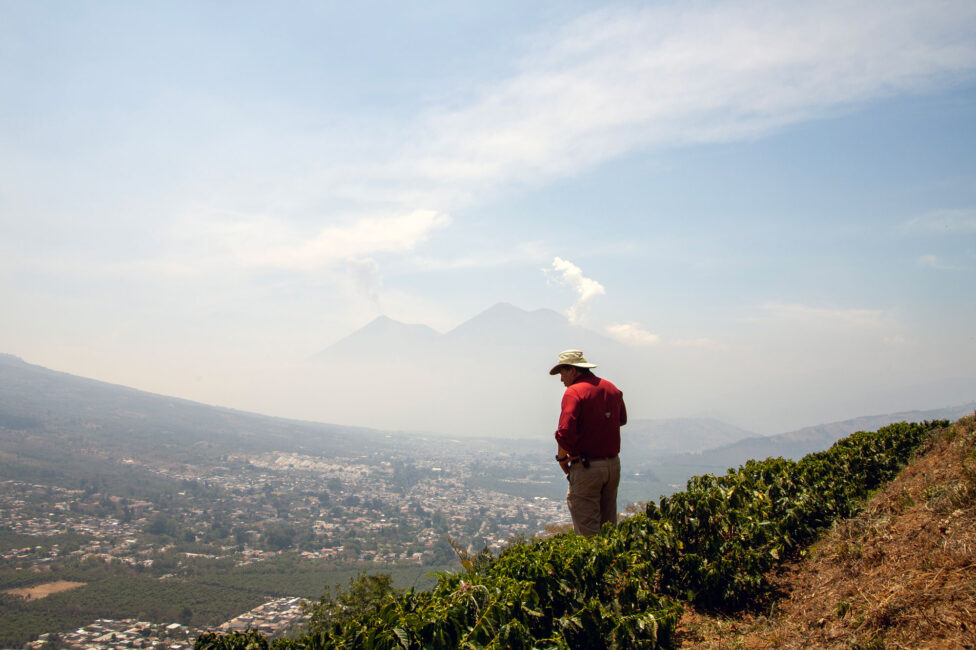La Ponderosa
Dried apricot, red apple and pear, with a brown sugar sweetness and toasted almond on the finish. Great structure and body.
La Ponderosa is owned by the Pérez family, who have been working in coffee for five generations. It is managed by Mr Wilfrido (fourth-generation coffee producer) and his son Mr Hernán (fifth generation coffee producer). Their mission is to produce high-quality coffee in the most sustainable way possible, and they care deeply about ensuring they look after both the environment and their community, and that everyone involved in their supply chain prospers.
La Ponderosa is forty-two hectares in size and is part of the ‘El Zapote y Anexos’ farms, which is also owned by the Pérez family, and was acquired in the 1950s. El Zapote has won many awards in the Cup of Excellence over the years, including a Presidential award in 2018, and most recently in 2020. La Ponderosa is Rainforest Alliance certified and has also placed in many times in Anacafe’s regional competition.
La Ponderosa is located near the village of Agua Dulce, in Cuilco, Huehuetenango, a stunning region located in the west of Guatemala near the border of Mexico. Huehuetenango is known for its vast ethnic diversity and Los Cuchumatanes mountain range, the highest non-volcanic mountain range in all of Central America. It is also home to some of the most celebrated coffees in the country, which frequently appear in the top ten of the Cup of Excellence competition. This is in part due to the incredibly high altitudes that coffee is able to grow at (up to 2,000m above sea level), thanks to the dry, hot winds that blow into the mountains from Mexico’s Tehuantepec plain which protect the region from frost. These high altitudes, combined with a relatively predictable climate make for exceptional, complex and very sweet coffee, like this very special lot from La Ponderosa.
La Ponderosa sits at an altitude of 1,400–1,800m above sea level. The high altitude of the farm means that the beans mature very slowly, giving time for the sugars to develop and resulting in a clean, sweet and complex cup. The topography is steep and irregular, making harvesting very labour-intensive and time-consuming. All of the coffee is picked by hand by a team of seasonal workers, most of whom live locally and join the farm each year. They typically do multiple passes throughout the season (which typically runs from December through to April) to ensure only the very ripest cherries are selected.
The Peréz family have planted a range of varieties on the farm including Anacafé 14, Bourbon, Catuai, Caturra, Geisha, Pacamara and Villa Sarchi. This particular lot is Bourbon and Catuai. The coffee grows under the shade of Ingas and Grevillea trees which protect the coffee trees from the sun and provide valuable organic material which helps keep the soil moist and well-nourished.
The Peréz family are committed to producing the very best quality coffee possible. This starts with farming in the most sustainable way, and looking after the team that grow, harvest and process the coffee. The family is ambitious, innovative and progressive, and constantly looking at ways to improve quality, yield and their environmental footprint.
Harvest time at La Ponderosa begins in December and concludes at the end of March. Around one hundred people are given employment during this time, from the surrounding villages which helps sustain the local economy. These seasonal workers are trained in best-picking techniques and select only the perfectly ripe cherries.
At the end of the day, each of the workers delivers their carefully selected coffees to the beautifully maintained wet mill, which is located at El Zapote. Here the coffees are carefully hand-sorted and then weighed, pulped and fermented for 40–48 hours. The beans are then washed, graded by weight in long channels and carefully dried—first on the farm’s pristine patios and then on raised beds in the sun for around two weeks.
